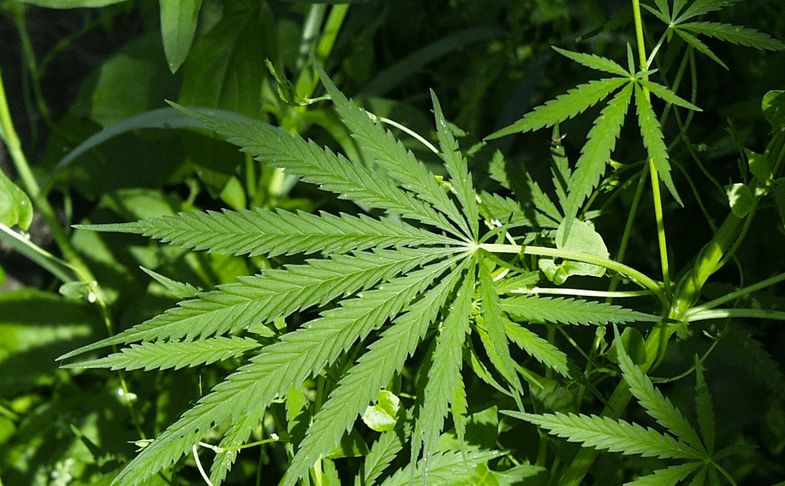While marijuana legalization advocates cheer on the slow but growing support for their cause, a new study in the effects of marijuana could make the road to legalization a little less smooth.
A new study out of the Wilford Hall Ambulatory Surgical Center in San Antonio, Texas warns of a growing number of instances in which patients are diagnosed with an allergy to cannabis. The study calls the allergy “unconventional” and emphasizes that as more states move toward full legalization, that this allergy could become more prevalent. Metro spoke with allergy and immunology specialist, Dr. Purvi Parikh of the Allergy & Asthma Network and NYU Langone Medical Center to get a better understanding of the marijuana allergy: Can you break down the basics of what this allergy is all about ?
You can be allergic to anything, that’s the nature of how allergies are, but now that more states are legalizing marijuana it’s coming to the forefront. It’s not that the allergy is new but it’s now being more recognized. The allergen is the plant itself, called Cannabis Sativa. That plant itself can cause a lot of allergic symptoms in people. From hay fever symptoms, itchy eyes, stuffy nose. It can cause asthma, or even more severe allergic reactions like anaphylactic shock. It’s a unique type of allergen because it’s something that you know is inhaled and can also be [acquired] through second hand smoke.I’ve seen one patient that suffered from very bad breathing problems, and she herself didn’t smoke marijuana but all of her neighbors around her did. She was getting a lot of exposure through heating vents and air ducts. It has a public health concern as marijuana does become more legalized because more states may start growing it. The production of it can release allergens into the air. The same way pollen travels through the air, marijuana itself can also produce a pollen.
Marijuana: The side effect you need to know

Wikimedia

![|<image-caption>
<p>Dr. Purvi Parikh
<p></image-caption>|” title=”|<image-caption>
<p>Dr. Purvi Parikh
<p></image-caption>|” /></div>
<p><!-- END scald=3009 --></div>
</div>
<p><b>How does one get this allergy?</b>
<p>Even if you’re not allergic to the actual plant, I’ve noticed a lot of people with either mold or dust mite allergies have problems with marijuana because when it’s sitting around it does become moldy, it does accumulate dust mites. There are even other allergens that can complicate the picture too. It [can be acquired] through inhalation, through touching it, handling it, breathing it in, and ingestion. There are many different ways that it can affect somebody. That’s what makes it a little more unique than some of the other allergens.</p>
<p>I think we will be seeing more cases of this allergy, and more people will be likely to report it, because if something is illegal I think people are less likely to mention that they have a problem with it or report an issue it.</p>
<p><b>How common is this allergy?</b>
<p>Currently I don’t think that data exists in terms of the percentage nationwide. Right now what I do know is that it’s pretty rare, and rarely reported at this point. I don’t know if that’s just because people are timid about reporting it (it is an illegal substance in most states), or if it’s just the prevalence has not come to the forefront yet. I do suspect that the incidence and prevalence of it will go up as more state legalize and more people are exposed to it.</p>
<p><b>What do you think are the implications of this allergy are?</b>
<p>I think in the same way that is for any medication or any [substance] that people can develop allergies too, it’s just another risk factor, another side effect. It should be taken into account in terms of when it is legalized in places that maybe there should be some type of protection especially for people that may get exposed, that don’t necessarily need it medicinally or want it. I think the biggest implication is that it’s one of the few allergens that puts other people at risk too.</p>
<p><b>Can children be affected by this?</b>
<p>There hasn’t been much data with children. In the same way that an adult can be affected by allergies, children are affected in the same way. Presumably if an adult has an allergy to something over time the child can also develop it. A child just by exposure can develop it. If a child is in a home where somebody is using it, they are at risk for developing that as well and that could cause long term consequences for that child. People who already have asthma or allergies are even more at risk for developing more asthma or allergies. If you have a child that is asthmatic they’re at higher risk of developing this type of allergy.</p>
<p><b>Are there are any treatments that could help?</b>
<p>Currently none exist. What we do have for allergies is desensitization, for people who suffer from certain allergies we’re actually able to in a sense desensitize them so they stop being as allergic and almost effectively cure they’re allergy by inducing either a permanent or temporary tolerant. Lets say this allergy does become more and more prevalent and more a problem that could be an option in the future.</p>
<p><b>What does the desensitization involve?</b>
<p>When your body develops an allergy, your immune system decides ‘I don’t like’ this foreign substance and it kind of rejects it and you have a violent reaction from your body whether it be breathing or hives or anaphylaxis. The way we desensitize people is giving small doses of an allergen, very safely and in gradual increments until the immune system no longer recognizes as something that it doesn’t like and the immune system becomes tolerant of it.</p>
<p><b>Is there one thing readers should know about this?</b>
<p>It will become more common as [marijuana] becomes more prevalent. Sometimes the allergy isn’t always from the cannabis itself. It can be from the mold or dust mites which are very common allergies.</p>
<p></text>
<div class=](http://default/main/articles/2015/03/09/photo_1.png)

















